
LIGHT is a powerful new documentary directed by Caroline Treadway exploring the little-discussed subject of eating disorders among professional climbers. Top US athletes Angie Payne, Emily Harrington, Andrea Szekely and Kai Lightner—and British climber Naomi Guy—share their experiences of struggling with eating disorders and the pressure they felt, and can still feel, to attain and maintain an ideal (light) weight and body shape for climbing.
The film addresses the culture of diet, training and calorie-counting fixation that has long been the elephant in the room in performance climbing; a gravity-defying sport in which performance is—inconveniently and often dangerously—heavily influenced by weight.
While eating disorders have historically been perceived as female illnesses, men are also susceptible. Around 1 in 3 people struggling with an eating disorder is male. At subclinical level, disordered eating behaviours are nearly as common among men as they are among women. In the film, Kai Lightner discusses the stigma surrounding male eating disorders, and it is revealed that Kai was the only male interview subject who felt able to talk about the subject for the documentary.
Feeling strong feels better than feeling light.
Although eating disorders and disorded eating in climbing are not limited to professionals, studies have shown that there is a 20% higher prevalence amongst athletes of all ages and abilities to develop a dysfunctional relationship with food and training. If left unchecked, eating insufficiently and in a disorded way, often while expending more energy than we take in, can disrupt the menstrual cycle, cause erectile dysfunction, reduce bone density and lead to multiple physiological and psychological issues. Ultimately, eating disorders can lead to organ failure and death.
RED-S —Relative Energy Deficiency in Sport—is emerging as a prevalent illness in various sports across all ability and participation levels. Check out the #TRAINBRAVE campaign and read our UKC articles below for more information on how the condition can develop and how to seek help.
Helpful resources:
RED-S paper - British Journal of Sports Medicine









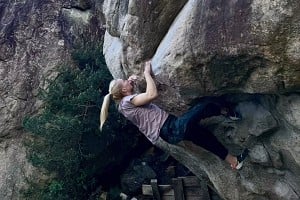
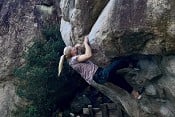
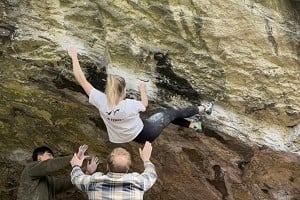
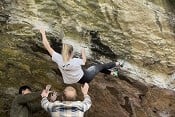
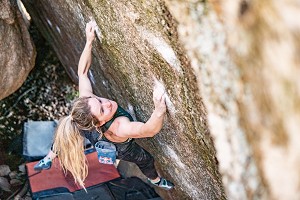
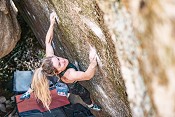
Comments
Superb. This needs sharing widely.
Really interesting, although felt along way away from my experiences of climbing. I remember reading about competitive dieting between Sheffield sport climbers in the early 90s, and people saying it really wasn't safe in retrospect, and I guess that was mainly men. Wasn't it Paul Pritchard who said that lots of people took dance drugs both to have fun but also keep their weight down back in those times?
I think it would be great to have a follow up video to this that explains the performance benefits of eating more (or eating well?) with a load of really convincing data to back it up. If the main goal of those that don't eat enough is improved performance, then do we need to highlight why they'll perform better with a better diet? I would assume (but I'm not dietitian or sports scientist) that it would go something along the lines of: better eating habits = better quality training and faster recovery, leading to more quality training sooner, leading to better performance.
I guess those with eating disorders may choose to add onto the end of that equation a massive crash diet to reach peak performance which is mentally hard to want to put weight back on from. One of the other issues is perhaps a need to continuously climb at your peak to satisfy sponsors (or your own drive) leading to constantly being underweight. Presumably, competition climbers periodise their weight so that they are 'heavy and healthy' when training then drop it for comps? I guess the temptation to always be at your peak means you wouldn't want to go back up to a healthy weight after the event.
I'm not sure where I'm going with this ramble really. Just empathising that its hard not to always think 'if i was a bit lighter I could pull a bit harder'. When I was 22 I was around 9 stone and didn't eat enough - I felt 'light' and it felt good. I'm now 36 and 10.5 stone. I climb harder than I ever have but its still tempting to try and diet to feel light again. I still often find myself thinking 'How unhealthy is it really to drop weight quickly for a goal as long as you've got the discipline to put it back on?'
Well worth watching. Very informative.
Important and insightful. Thanks!